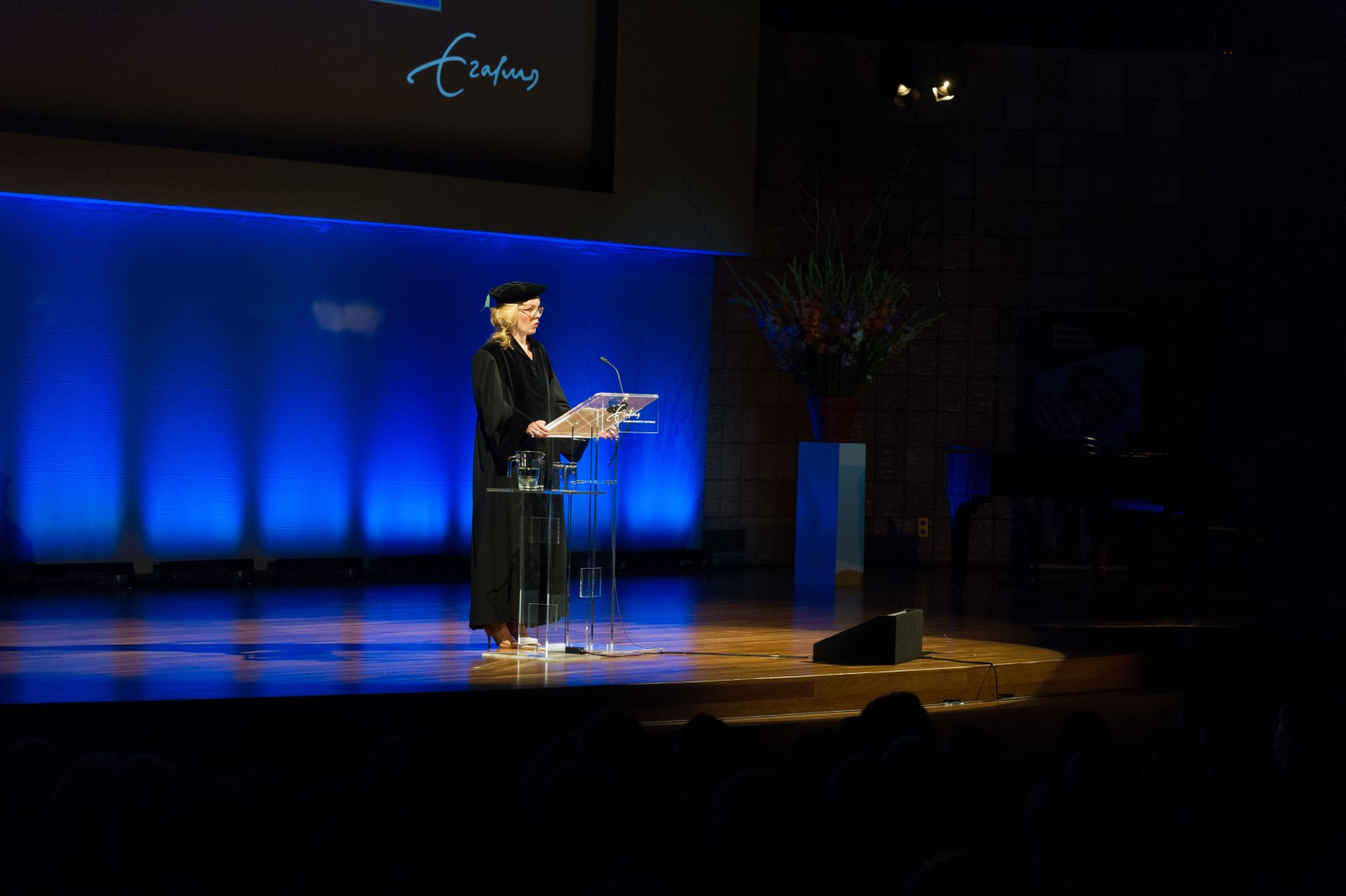Agenda
Beatrice de Graaf opened academic year at Erasmus University with lecture on the role of the scientist
I n a context of accelerating, institutional, intellectual and moral uncertainties, what role does the scientist play? What role ought he to play, and how can politics and institutional settings facilitate this role? Prof. Beatrice de Graaf explored these questions in her guest lecture at the opening of the academic year at Erasmus University Rotterdam, on 31 August 2015.
n a context of accelerating, institutional, intellectual and moral uncertainties, what role does the scientist play? What role ought he to play, and how can politics and institutional settings facilitate this role? Prof. Beatrice de Graaf explored these questions in her guest lecture at the opening of the academic year at Erasmus University Rotterdam, on 31 August 2015.
GOOSE WITH GOLDEN EGGS
In her lecture De Graaf presented two stories, or models, each representing a different vision on the role of the scientist. The story of the goose that lays golden eggs represents the utilitarian approach to science that we recognise, according to De Graaf, in many European politicians and also in NWO: investments in science are necessary because society benefits from the results (either as financial profits or solutions to societal challenges).
BILDUNG
Besides this narrative, De Graaf presented the story of Bildung. In this story the university is an independent place where norms, values, ethics and ideals are developed, cultivated and discussed between students and teachers. It is not about ‘input’ and ‘output’ as in an economic model, but about developing individual responsibility, pioneering innovation, and the self-examination of democratic citizens.
MORE AND MORE GOLDEN EGGS?
De Graaf emphasised that both approaches are equally valuable. Science should not be an ivory tower, nor a mere sum of costs and profits. What is worrying De Graaf, however, is that the utilitarian model seems to become increasingly dominant, both in society as in the academic world itself: there is an increasing pressure to lay those golden eggs. Academic life cannot be regulated from above. On the contrary, it needs space and freedom to function properly.
BALANCE BETWEEN TWO MODELS
De Graaf suggested improvements in order to create a better balance between the two models and to create more diversity in academic life. Among others: protect the young ‘geese’ (raise the budget of the NWO Vernieuwingsimpuls), feed the flock generously (invest seed money and increase success rates for NWO applications), and organise ‘free-range poultry holdings’ (give scientists time and space to think, by implementing sabbaticals).
The Dutch Science Agenda (Nationale Wetenschapsagenda) will be able to highlight and help to protect the varieties of and diversities within academic life in the Netherlands, according to De Graaf. Among the approximately12,000 questions that have been submitted, a large number was not dominated by utilitarian motives, but instead they deal with matters such as identity, citizenship, the origins of mankind, or the need for religiosity.



